Lines blurred between on and offline security

The term “cyber” security is in danger of being overused – not because it isn’t an important topic, but because the distinction between on and offline safety are less distinct than ever.
That’s the message from a Midlands IT support specialist who believes adding the “cyber” label could do more harm than good.
Chris Pallett, managing director of business technology and communications support firm, Bespoke Computing, is a 20-year veteran of the industry and has tracked the trends over that time.
He said: “What we’re going to see an awful lot more of in 2016 is emphasis on security for connected devices, be they massive corporate server arrays or the phone in your pocket.
“What’s misleading is to call this “cyber security”. It’s not that anymore; it’s your whole corporate or personal security – you can’t distinguish between on and offline now, that’s just pointless. In fact, calling it “cyber security” runs a huge risk of people just switching off and not paying attention to the topic. They think they’ve heard it all before and it doesn’t apply to them.”
But Chris’s argument is that, with everything we do somehow connected to the world’s computer networks, we all have a responsibility to think about making ourselves and those around us safe.
Security is Everyone’s Responsibility
“Whether you use personal or company IT in your day-to-day life or not, you are a risk to data security. It’s not all a world of hackers trying to get in through “back doors” in systems, more often than not they will exploit human weakness instead. They trick people into giving up information or into downloading software that will steal data. They might even do it over the phone,” Chris explained.
“We need to educate everyone about the risks and their responsibilities. Scams we haven’t thought of yet will be used to steal personal information which, on its own, may be innocuous, but when it’s combined with other bits of data such as date of birth, mother’s maiden name, etc., suddenly unlocks your privacy and maybe your finances – or the critical data on which your employer’s business is built.”
This year will see a big push by the Government and technology industry to make this country more aware of the risks and begin to get all businesses into the mindset of addressing at least the basics and of educating their staff.
Chris added: “If we can make everyone realise that everything ends up on a computer and keeping yourself safe isn’t rocket science, but is your responsibility, we’ll take great strides in 2016 to being ready for a future in which even the fridge talks to the internet.”
